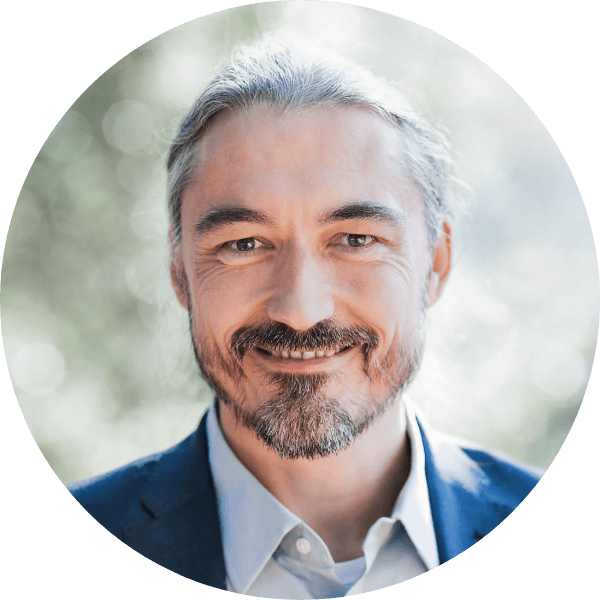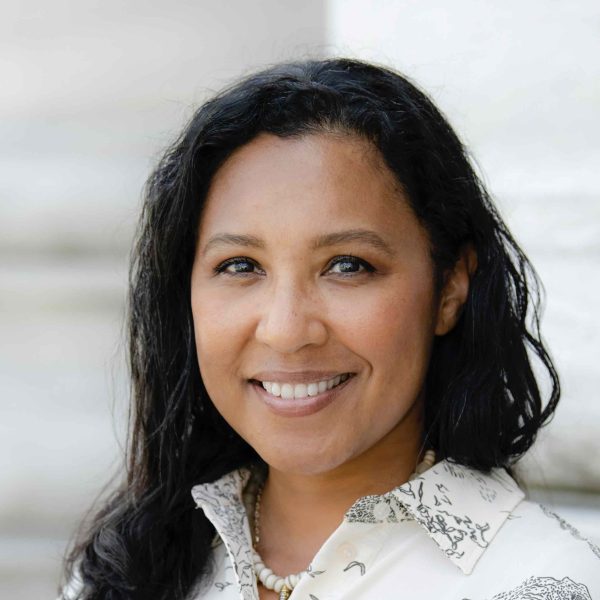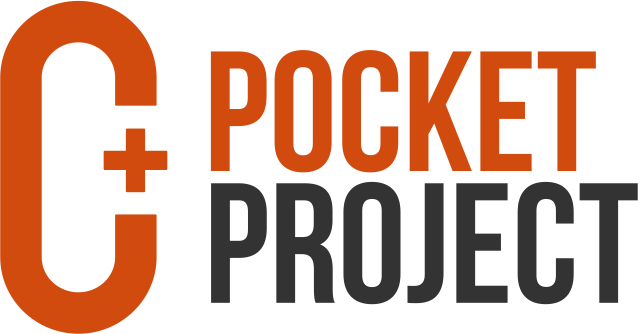applied
trauma-informed
online course 2024
online course 2024
Trauma-Informed Leadership
Trauma-Informed Leadership Essentials 2.0
Self Paced Online Course
How can we, as leaders, become focal points for relationality, coherence, and safety in our spheres of influence? How can we help to build resilience and healing architectures, even when the world is in crisis? How can we cultivate collaboration and co-creativity as we navigate the complexity of our realities?
This course brings together the best content of three years of Trauma-Informed Leadership Training – certified and organised in a cohesive approach.
As trauma-informed leaders, we develop our skills for systemic healing, becoming more able to integrate the past, fulfil our potential, and create new opportunities and possibilities with our teams. We help our communities and organisations to wake up to the hidden variable in our social matrix: individual, ancestral, and collective trauma. In creating spaces of relationality and safety, we create spaces of self- and co-regulation, where we become able to take care of the aftermath of transgressions and turn our wounds into shared learning and post-traumatic growth.
Each of us can become an acupuncture point for trauma-informed care.

When experience meets us in our open, vulnerable and responsive aspects, it becomes water, fluid life. I can respond to my life circumstances as a leader. But if snowflakes fall onto ice and my life experiences meet me in my trauma, I can’t respond to the life circumstance, and then we call it a problem, a difficulty, a challenge. – Thomas Hübl, Founder of Pocket Project
Identify and collect your personal toolbox of key practices and resources for trauma-informed approaches.
Learn to embody practical strategies for self-regulation and stress integration to transform wounds into wisdom.
Engage more skillfully with relational challenges, including the ability to recognize and respond to symptoms of trauma.
Recognize the complex interplay of individual, ancestral, and collective trauma, preparing the ground for post-traumatic growth.
Meet ‘difficulties’ as the way, rather than in the way, cultivating curiosity and catalyzing latent intelligence.
Foster an increased capacity for systems sensing and meet the communities we serve with a higher level of response-ability.
Lead from the future and use creativity and prototyping as agile tools for collective restoration processes.
Identify and map your own implementation plan for trauma-informed architectures in your chosen environments.
Develop strategies for a network of trauma-informed practitioners and design culturally inclusive healing pathways.
Trauma-informed leadership is an approach to leadership that acknowledges the presence and impact of trauma in individuals' lives and seeks to create a safe, supportive, and responsive environment for everyone.
Section 1:
Why Trauma-Informed Leadership? – Understanding the Principle of Care
- Reflecting on the nature of crisis and purpose in leadership
- Exploring individual, ancestral, and collective resilience and trauma
- Recognizing normalized behaviors as potential trauma responses
- Setting trauma-informed intentions aligned with core principles
- Shifting from power over to power with
3 Modules
Thomas Hübl

Kosha Joubert

Maria Leister

Section 2:
Befriending Self – Creating Spaces of Safety Within
- Building an inner resilience toolkit, based on neurobiological understanding
- Developing basic competencies for self- and co-regulation
- Cultivating presence, spaciousness, and connectedness in interactions
- Reflecting on how our inner work builds a solid foundation for our outer work
- Integrating vulnerability and strength in leadership
Thomas Hübl

Deb Dana

Kosha Joubert

Section 3:
Befriending Other – Creating Spaces of Safety in our Teams
- Accessing resilience-building techniques for team support
- Developing relational attunement and co-regulation skills
- Expanding trauma-recognition and trauma-informed collaboration capacities
- Enhancing interpersonal communication within trauma-informed frameworks
- Cultivating empathy and compassion within professional relationships
Jens Riese

Brettina Rollow

Louise Marra

Section 4:
Befriending Other – Dismantling Systems of Oppression
- Practicing the art of speaking truth
- Identifying and fostering cultural diversity as a source of team strength
- Cultivating a trauma-informed culture that amplifies marginalized voices
- Recognizing signs and symptoms of racialized trauma in team dynamics
- Expanding circles of support and engaging in harm repair
Rola Hallam

Karen Simms

Maria Leister

Section 5:
Befriending Life – Embodying the Ground We Walk Upon
- Fostering an increased capacity for systems sensing
- Embedding ourselves in the living systems of the earth
- Acknowledging the living past that is showing up through us
- Bridging the human-nature divide to nurture regenerative solutions
- Engaging with cultural resources, wisdom, and addressing cultural wounds
Efu Niyake

Steffi Bednarek

Thomas Hübl

Section 6:
Befriending Humanity – Addressing Collective Trauma Integration
- Recognizing systemic relational dynamics in harmful situations
- Enhancing organizational, societal and cultural trauma sensitivity
- Initiating rapid learning loops for trauma sensitivity in organizational contexts
- Integrating a basic understanding of the 6 Stages of Collective Trauma integration
- Fostering spaces of integration for organizational and collective resilience
Thomas Hübl

Section 7:
Growing a Healing Architecture – Life as a Prayer
- Recognizing and navigating liminal spaces within trauma-informed care
- Aligning with the emerging future for the highest common good
- Designing healing architectures that are culturally responsive and inclusive
- Building networks of trauma-informed practitioners for collaborative support
- Bringing this course into fruition – becoming the ones we have been waiting for
Thomas Hübl

Kosha Joubert

All income from this course will be invested in the global healing work of the Pocket Project!
Scholarships

Thomas Hübl
Thomas Hübl, PhD, is a renowned teacher, author, and international facilitator who works within the complexity of systems and cultural change, integrating the core insights of the great wisdom traditions and mysticism with the discoveries of science. Since the early 2000s, he has led large-scale events and courses on the healing of collective trauma.
He is the author of Attuned: Practicing Interdependence to Heal Our Trauma—and Our World and Healing Collective Trauma: A Process for Integrating Our Intergenerational and Cultural Wounds. He has served as an advisor and guest faculty for universities and organizations, as a coach for CEOs and organizational leaders, and is currently a visiting scholar at the Wyss Institute at Harvard University.

Deb Dana
Deb Dana, LCSW, is a clinician, consultant, and author known for her work in Polyvagal Theory. A founding member of the Polyvagal Institute and a consultant to Khiron Clinics, Deb has significantly advanced the accessibility and application of Polyvagal Theory through her pioneering Rhythm of Regulation® methodology. Her approach empowers professionals and individuals from all backgrounds to explore the potential of Polyvagal Theory.
Deb is the author of several influential books, including The Polyvagal Theory in Therapy (2018), Polyvagal Exercises for Safety and Connection (2020), and Anchored (2023). She has also co-edited Clinical Applications of the Polyvagal Theory and created the Polyvagal Flip Chart and Card Deck.

Steffi Bednarek
Steffi Bednarek is a climate psychology consultant, trauma therapist, writer, public speaker, and event curator at the intersection of climate change, psychology, and ecological thinking. Steffi’s work nurtures psychologically informed climate leadership, collective nervous system regulation, and regenerative action in a time of global upheaval.
Steffi has worked with national governments, the corporate sector, global financial institutions, the sustainability sector, and large NGOs. Her work has been featured in international publications, peer-reviewed academic journals, numerous book chapters, podcasts, and documentaries.

Rola Hallam
Dr. Rola Hallam is an award-winning doctor, trauma-informed life coach, social entrepreneur, and humanitarian. As the first Syrian TED Fellow and founder of CanDo, she has built seven hospitals in Syria, including the first crowdfunded hospital, reaching over 4 million people.
Rola’s work has been featured in major media outlets such as the New York Times, The Daily Show, and BBC documentaries. Her online talks have reached over 11 million views, inspiring thousands to take action for change.
A passionate advocate for healthcare protection in conflict zones, Rola’s TEDx talk, From Clever to Wise, shares her mission to empower frontliners—healthcare workers, therapists, campaigners, and social entrepreneurs—to heal trauma and drive transformation in communities worldwide.

Karen Simms
Karen Crawford Simms, MAMFT, LMHC, is a seasoned consultant, trainer, facilitator, and coach with over 30 years of experience in building trauma-informed, healing-centered, and equitable systems and communities. She is the founding director of the Trauma & Resilience Initiative (TRI), a nonprofit focused on promoting resilience and justice through education and advocacy.
In addition to her work with TRI, Karen leads Meridian K Consulting & Coaching Services, providing trauma-informed coaching and consulting to individuals, organizations, and communities. She is also a founding director of the MindShift Center, where she offers counseling services and training focused on complex trauma.
Known for her dynamic and impactful training sessions, Karen is dedicated to helping healers, activists, and leaders flourish and stay well while addressing the deep-rooted challenges within systems and communities.

Bettina Rollow
Bettina Rollow is an executive coach and organizational developer. Her experience ranges from individual coaching, team development to New Work. Bettina focuses on complex projects that involve the development of the organizational structure as well as the development process of the individual.
With her Master’s Degree in International Business Studies and her training as a Gestalt therapist, she specializes in developing new forms of leadership and collaboration. For Bettina, New Work is not a mere structural or process adjustment but a culture development process – for the organization as a whole and the employee as an individual.
Bettina is co-author of the books “New Work needs Inner Work” and the “Entfaltete Organisation” and co-founder of the think and sense tank Das Dach. She lives in Berlin, Germany.

Efy Nyaki
Efu Niyaki was born and raised in Tanzania where she earned a bachelor of science degree, trained as a Science teacher, and later on, trained as a healer.
Efu is a Faculty Member of Somatic Experiencing®, and a Professor of Family Constellation System Therapy with the Hellinger Institute. In the last 27 years, Efu has been living in Brazil and facilitating training and therapy for trauma healing using Somatic Experiencing®. She has been travelling to bring her work to other countries, including India, Egypt, South Korea, China, Bolivia, Peru, Spain and Uruguay. Due to the Pandemic, Efu has been taking her work online and became even more international.
Efu is a co-founder of AFYA: a healing centre, run by women, which offers alternative forms of preventative health care and holistic healing to adult and adolescent women, their families and their communities in impoverished areas of northern Brazil. AFYA, meaning ‘health’ in Swahili, the language spoken in Tanzania and parts of East Africa.

Louise Marra
Louise Marra has held senior leadership roles across government, private sector, philanthropy, and NGOs. She has advised the Prime Minister, led collaborative government offices, and helped establish social innovation labs.
A founder of Spirited Leadership and Unity House, Louise offers individual and group coaching, combining years of experience in facilitation, meditation, mindfulness, yoga, and transpersonal psychology. She works globally and locally, directing the Leadership New Zealand programme and advising the Centre for Social Impact.
Descended from the iwi Ngāi Tuhoe, Louise’s practice is rooted in indigenous principles. She holds post-graduate qualifications in environmental management, public policy, and Jungian psychology, and is a certified coach.

Jens Riese
Jens Riese is a transformational coach, trauma therapist, leadership trainer, and social change facilitator with over 20 years of experience. He has supported leaders from governments, NGOs, and companies through transformative processes. As a Senior Partner at McKinsey, he co-founded and led practices focused on sustainability, economic development, and centered leadership, advising over 20 countries and 50 companies on building more sustainable and resilient economies.
Jens pioneered the use of lab approaches to engage diverse stakeholders in social change and crisis recovery, working in countries like Tanzania, Ethiopia, Sierra Leone, and Papua New Guinea. He has studied extensively with Thomas Hübl and hosted several of his online events. Jens’ therapeutic training includes IFS, NARM, NLP, LCP, somatic coaching, and team coaching. He holds a PhD in developmental biology, evolutionary biology, and environmental management.

Maria Leister
Maria Leister is the Chief Operating Officer (COO) of the Pocket Project and a Director at the Harvard Program in Refugee Trauma, where she advocates for trauma-affected refugees and addresses global migration challenges. With extensive experience in program leadership, including roles at Harvard Law School’s criminal defense program and strategic planning in the private sector, Maria is well-equipped to create culturally responsive service networks.
Her legal background and deep understanding of mental health trauma shape her impactful work. Maria is currently pursuing a Master’s degree at Harvard Medical School’s Center for Bioethics and holds a JD from Indiana University, alongside a fellowship at Harvard University’s Office of the President, bringing a comprehensive approach to humanitarian crises.

Kosha Joubert
Kosha Joubert serves as CEO of the Pocket Project. She holds an MSc in Organisational Development, is an international facilitator, author, coach and consultant, and has worked extensively in the fields of sustainable development, curriculum development and intercultural collaboration.
Kosha grew up in South Africa under Apartheid and has been dedicated to the healing of divides and collective trauma ever since. She has been learning with Thomas for 15 years. She has served as a host and mentor for almost all of Thomas Hübl’s online courses, co-moderated two of the Celebrate Life Festivals and was a co-host of the 2019 and 2020 Online Summit on Collective Trauma.
